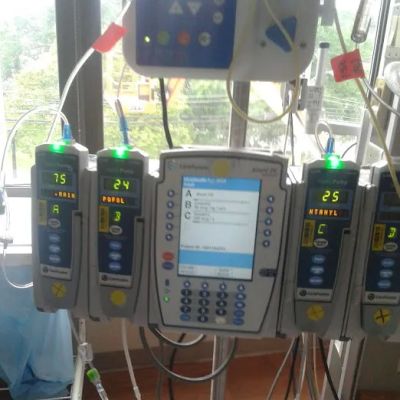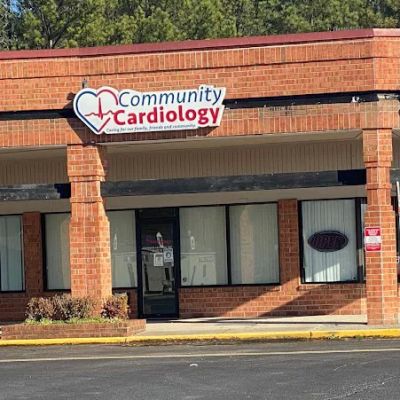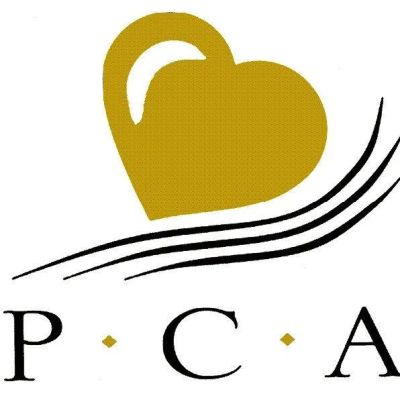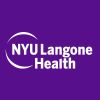Managing Heart Disease Through Alternative Medicine: My Personal Journey
When I was first diagnosed with heart disease, I was overwhelmed by the number of medications and lifestyle changes my doctors recommended. It felt like my entire life was about to be dictated by medical prescriptions and appointments. But after some time, I began to explore other options—specifically alternative medicine—that could work alongside traditional treatments to improve my health and well-being. This journey into the world of holistic health was something that I initially approached with skepticism, but as I learned more, I realized the power of alternative therapies in managing heart disease. In this article, I’ll share what I’ve learned about using alternative medicine to manage heart disease, the therapies I’ve tried, and how they’ve supported my heart health.
Heart disease is a complex condition, often requiring a combination of treatments to effectively manage symptoms and prevent further complications. While prescription medications and lifestyle changes (like diet and exercise) are essential components of care, many people, including myself, find that adding alternative medicine can enhance overall health and support traditional treatments. I’m not suggesting that alternative medicine should replace conventional care, but rather that it can complement and support what your doctor recommends. Let’s take a deeper look into how alternative medicine can be integrated into a heart disease management plan.

1. The Role of Diet in Heart Disease Management
One of the first steps I took when exploring alternative methods for managing heart disease was addressing my diet. I had always heard that what you eat plays a significant role in heart health, but I didn’t fully understand the impact until I experienced it firsthand. My doctors had prescribed medications to lower my cholesterol, but I soon realized that diet could be just as powerful in preventing further damage to my heart.
Incorporating heart-healthy foods, such as those rich in omega-3 fatty acids, fiber, and antioxidants, helped me feel better and improved my overall health. I focused on eating more fruits, vegetables, whole grains, and fatty fish like salmon. I also started incorporating more plant-based meals into my diet, as studies have shown that plant-based diets can lower blood pressure and cholesterol levels, which are key factors in heart disease.
In addition to these heart-healthy foods, I also experimented with certain alternative treatments like the Mediterranean diet and Ayurvedic principles. The Mediterranean diet emphasizes healthy fats, like olive oil, and encourages foods that support heart health, including nuts, seeds, and legumes. I found that following this type of diet gave me more energy and helped me maintain a healthy weight, which further supported my heart disease management.
Atlanta Heart Specialists
atlanta heart specialists
4375 Johns Creek Pkwy #350, Suwanee, GA 30024, USA

2. Herbs and Supplements to Support Heart Health
Alongside dietary changes, I also looked into various herbs and supplements that could support my heart health. For many people with heart disease, managing blood pressure and cholesterol is key to reducing the risk of heart attack and stroke. That’s when I started researching natural supplements that might help complement my prescribed medications.
One supplement that I found helpful was omega-3 fish oil. Omega-3 fatty acids, found in fish oil, are known to reduce inflammation, lower triglyceride levels, and help with blood clotting. I noticed that after I added omega-3s to my daily regimen, my cholesterol numbers improved, and I felt more balanced overall. Additionally, I began using hawthorn extract, a traditional herb known for its potential to support heart function and improve blood flow. There is some evidence suggesting that hawthorn may help reduce symptoms of heart failure, and it’s been a common remedy in European and Asian alternative medicine for centuries.
Coenzyme Q10 (CoQ10) is another supplement that I incorporated into my routine after learning about its potential heart benefits. CoQ10 is an antioxidant that helps produce energy in the cells and has been shown to improve heart health by reducing blood pressure and improving circulation. I was amazed at how much better I felt after consistently using these natural remedies in combination with my regular medications.
3. Managing Stress with Alternative Therapies
Stress was something I never realized could affect my heart disease as much as it did. After several heart attacks, I was encouraged to reduce stress in my life, but I struggled with how to do so. That’s when I turned to alternative therapies such as yoga, meditation, and deep breathing exercises. Stress is a significant contributor to high blood pressure and poor heart health, and I realized that managing stress was a crucial part of my overall treatment plan.
Yoga, in particular, was something I found incredibly effective in calming my mind and reducing stress. Many yoga practices focus on deep breathing, mindfulness, and gentle movements, all of which help lower cortisol levels (the stress hormone). I started attending yoga classes twice a week and incorporated deep-breathing exercises into my daily routine. It didn’t take long for me to feel the benefits—both mentally and physically. Yoga helped me relax, improved my flexibility, and gave me a greater sense of control over my health.
Similarly, I learned about the benefits of mindfulness meditation in managing heart disease. Studies have shown that meditation can reduce anxiety, lower blood pressure, and even improve heart health. I started dedicating 10-15 minutes each day to mindfulness, focusing on my breathing and calming my mind. It wasn’t always easy at first, but over time, I felt less anxious and more in control of my heart health.
4. Acupuncture and Its Impact on Heart Health
Acupuncture is another alternative therapy I explored when managing my heart disease. I had heard about acupuncture’s ability to treat various conditions, but I wasn’t sure how it would help with heart disease. My curiosity led me to try a few sessions, and I was surprised at the positive impact it had on my overall well-being.
Acupuncture involves inserting very fine needles into specific points on the body to stimulate the body’s energy flow. For me, acupuncture was an effective way to reduce stress and improve circulation. There is some evidence to suggest that acupuncture may help lower blood pressure, reduce inflammation, and enhance heart health by improving blood flow. After a few sessions, I noticed that my blood pressure readings were lower, and I felt more relaxed overall.
While acupuncture should never replace conventional treatments, I found it to be a valuable complementary therapy that helped with the mental and physical aspects of managing heart disease.
5. The Importance of Exercise in Holistic Heart Health
Exercise has always been an essential part of maintaining a healthy lifestyle, but when I was diagnosed with heart disease, it became even more important. I began working with a personal trainer to develop a safe exercise routine that would support my heart health. After all, physical activity is one of the most effective ways to manage heart disease.
I was encouraged to focus on moderate-intensity aerobic exercises, like walking, cycling, and swimming. These types of exercises are proven to improve heart function, increase cardiovascular endurance, and reduce the risk of further heart complications. The great thing about alternative medicine is that it emphasizes a holistic approach, meaning exercise is not just about fitness but about improving heart health and overall well-being.
In addition to cardiovascular exercises, I also incorporated strength training into my routine. Research has shown that strength training can help reduce the risk of heart disease by improving muscle tone, increasing metabolism, and aiding in weight management. It wasn’t always easy, but with time, I saw my heart health improve, and I felt more energetic and confident.
6. Consulting with Healthcare Professionals
While I embraced alternative medicine, I never lost sight of the importance of working with my doctors and healthcare team. It’s essential to approach heart disease with a comprehensive strategy, and combining alternative treatments with conventional medicine is key to achieving the best results. I always made sure to keep my cardiologist informed about the alternative therapies I was using, and I sought professional guidance before adding any new supplements or treatments to my routine.
If you’re considering alternative medicine to manage heart disease, I recommend discussing it with your doctor or a healthcare provider who is open to these approaches. They can guide you in choosing the right treatments, ensuring they complement your existing care plan. Working together with your healthcare professionals ensures that you’re making informed choices for your heart health.
Managing heart disease with alternative medicine has been an empowering experience for me. The combination of diet, supplements, stress management, and exercise has not only improved my physical health but also my mental well-being. If you’re interested in learning more about holistic heart care, visit HeartCare Hub for the best doctors, hospitals, and services tailored to your needs.





















Deborah Heart and Lung Center
deborah heart and lung center
200 Trenton Rd, Browns Mills, NJ 08015, USA